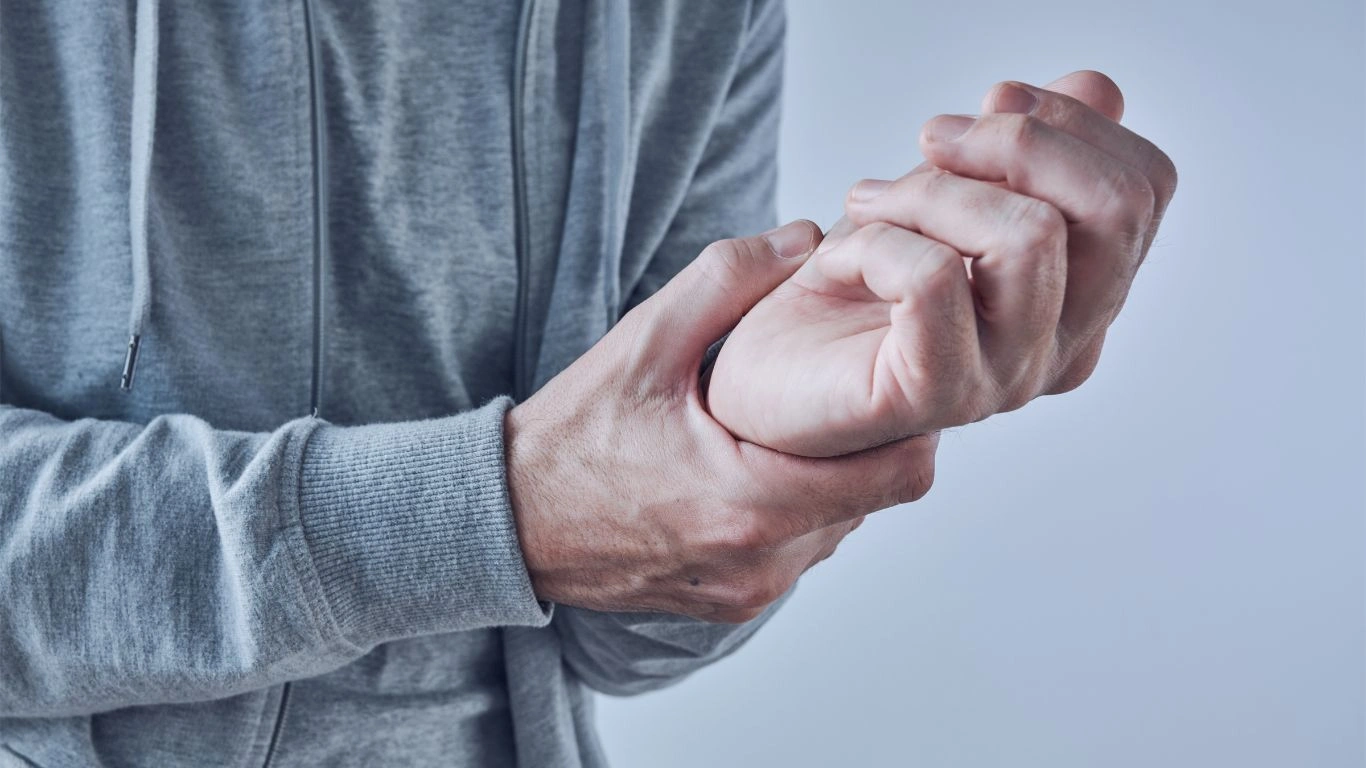The Benefits of Turmeric for Rheumatoid Arthritis – A Comprehensive Guide
Curious about how turmeric might help with rheumatoid arthritis? Let’s break down how this golden spice works wonders for joint pain and inflammation, and how it can become a part of your health routine.
Rheumatoid arthritis (RA) can be tough to manage, especially when dealing with painful inflammation and stiffness in the joints. While there are many ways to treat RA, one natural remedy that has gained a lot of attention is turmeric. You might have heard about it before, and for good reason. Turmeric, especially its active compound curcumin, has some powerful anti-inflammatory and antioxidant properties that could help alleviate RA symptoms.
In this guide, we’ll dive deep into the benefits of turmeric for rheumatoid arthritis, looking at how it works, how to use it, and what the science says. Plus, we’ll cover some practical tips for incorporating turmeric into your daily routine. Ready to learn more? Let’s get into it.
What is Turmeric and Why Does It Help with Rheumatoid Arthritis?
Turmeric is a yellow-orange spice commonly used in cooking, especially in Indian and Southeast Asian cuisines. The active ingredient in turmeric is curcumin, which has been shown to possess strong anti-inflammatory and antioxidant properties. This makes turmeric a natural choice for managing inflammation, a key symptom of rheumatoid arthritis.
RA is an autoimmune disease where the immune system attacks the joints, causing inflammation, pain, and damage. Since curcumin targets inflammatory pathways, it may help reduce the inflammation in the joints, thereby alleviating pain and stiffness.

How Does Turmeric Work for Rheumatoid Arthritis?
Curcumin works in several ways to fight inflammation and protect the joints from damage:
- Anti-inflammatory Effects: Curcumin blocks several molecules that are involved in inflammation. It inhibits inflammatory cytokines and enzymes, like TNF-alpha and COX-2, which are involved in the immune response in RA. By reducing these inflammatory markers, turmeric may help reduce joint pain and swelling.
- Antioxidant Properties: Turmeric has powerful antioxidant properties that help neutralize free radicals, which can damage cells and tissues. In rheumatoid arthritis, oxidative stress contributes to joint damage, and turmeric’s antioxidants may help slow this process.
- Immune Modulation: Some studies suggest that curcumin may help modulate the immune system. This is crucial for people with RA, as their immune system mistakenly attacks the joints. By regulating immune activity, turmeric may help reduce the overactive immune response that causes joint damage.
What the Research Says About Turmeric and Rheumatoid Arthritis
A growing body of research supports turmeric’s potential role in managing rheumatoid arthritis. Several clinical studies have looked at how turmeric supplements affect RA symptoms. While more research is still needed, the results so far are promising.
– A 2016 study published in the Journal of Medicinal Food found that curcumin supplementation reduced symptoms of RA, including joint pain and swelling, in people with active disease. In fact, the study showed that curcumin was as effective as non-steroidal anti-inflammatory drugs (NSAIDs) in reducing symptoms, with fewer side effects.
– Another study from 2012 in the Journal of Clinical Rheumatology showed that curcumin supplementation led to improvements in joint pain, stiffness, and swelling. It also helped reduce the use of NSAIDs, which are often associated with long-term side effects.
These studies suggest that turmeric may be a safe, natural supplement for managing RA symptoms, but it should not replace conventional treatments. Always talk to your doctor before adding turmeric to your routine, especially if you’re already on medication for RA.

How to Use Turmeric for Rheumatoid Arthritis
There are several ways to incorporate turmeric into your diet or routine, depending on your preferences and lifestyle.
1. Turmeric Supplements
One of the most common ways to take turmeric for RA is through supplements. These are available in capsule, tablet, or powder form, and they typically contain concentrated doses of curcumin. If you go the supplement route, make sure the product contains black pepper extract (piperine), which can enhance curcumin absorption.
2. Turmeric Tea
You can make a soothing turmeric tea by mixing turmeric powder with hot water, honey, and lemon. Some people add ginger, which also has anti-inflammatory properties, to boost the tea’s benefits. Drink this once or twice a day to help fight inflammation.
3. Turmeric in Cooking
Another easy way to include turmeric in your routine is by adding it to your meals. It pairs wonderfully with curries, soups, stews, and even smoothies. Just a pinch of turmeric powder in your cooking can give your meals an anti-inflammatory boost.
4. Topical Turmeric Paste
Some people find relief by applying a turmeric paste to affected joints. Mix turmeric powder with water or coconut oil to form a thick paste and apply it to swollen or painful joints. This can help reduce inflammation on the skin’s surface, although it won’t work as deeply as oral supplements.

Other Benefits of Turmeric Beyond Arthritis
Turmeric isn’t just beneficial for rheumatoid arthritis. It also offers other health benefits, including:
- Supporting brain health: Curcumin has been linked to improved cognitive function and a lower risk of neurodegenerative diseases like Alzheimer’s.
- Boosting heart health: Turmeric’s anti-inflammatory and antioxidant effects may help reduce the risk of heart disease by lowering cholesterol and improving blood vessel function.
- Enhancing digestive health: Turmeric can aid digestion by stimulating bile production and reducing symptoms of bloating or indigestion.
Possible Side Effects of Turmeric
While turmeric is generally safe for most people, it can cause some side effects, especially when taken in large doses. These may include:
- Gastrointestinal issues: Some people experience stomach upset, diarrhea, or bloating when taking turmeric.
- Blood thinning: Turmeric may interfere with blood-thinning medications, so if you’re on anticoagulants, it’s best to talk to your doctor first.
- Allergic reactions: Although rare, some people may be allergic to turmeric.
Conclusion
Turmeric, with its powerful active compound curcumin, offers a natural way to fight inflammation and manage the symptoms of rheumatoid arthritis. While the research is still ongoing, the existing evidence suggests that turmeric may be a helpful addition to your RA treatment plan. Just remember to consult your healthcare provider before starting any new supplement.

Appendices
FAQs
- How much turmeric should I take for rheumatoid arthritis? The recommended dosage varies, but studies often use doses of 500 to 1,000 mg of curcumin per day. Always start with a lower dose and increase gradually.
- Can turmeric cure rheumatoid arthritis? While turmeric can help alleviate symptoms, it’s not a cure for RA. It should be used alongside other treatments as part of a comprehensive RA management plan.
- Are there any side effects of turmeric? In large doses, turmeric may cause gastrointestinal issues, interfere with blood thinners, or trigger allergic reactions in some individuals.
- Can I take turmeric if I’m on medication for RA? It’s important to consult with your healthcare provider before adding turmeric to your regimen, as it may interact with certain medications.
- How can I incorporate turmeric into my daily diet? You can add turmeric to your meals, take supplements, or make turmeric tea. Be sure to combine it with black pepper to enhance absorption.
References
- Chandran, B., & Goel, A. (2012). A randomized, double-blind, placebo-controlled trial of curcumin in patients with active rheumatoid arthritis. Journal of Clinical Rheumatology, 18(2), 125-130.
- Hewlings, S. J., & Kalman, D. S. (2017). Curcumin: A review of its effects on human health. Foods, 6(10), 92.
- American College of Rheumatology. (2024). Rheumatoid Arthritis: Management and Treatment. Retrieved from Rheumatology.org
Disclaimer:
The information provided in this article is for educational purposes only and does not substitute for medical advice. Please consult with a healthcare provider before making any changes to your treatment regimen.

Tarra Nugroho is a dedicated Nurse Practitioner with a strong foundation in family and preventive care. She brings both compassion and clinical expertise to her practice, focusing on patient-centered care and health education. As a contributor to Healthusias.com, Tarra translates medical knowledge into clear, empowering articles on topics like women’s health, chronic disease management, and lifestyle medicine. Her mission is simple: help people feel seen, heard, and informed—both in the clinic and through the content she creates. When she’s not caring for patients, Tarra enjoys weekend hikes, plant-based cooking, and curling up with a good health podcast.







